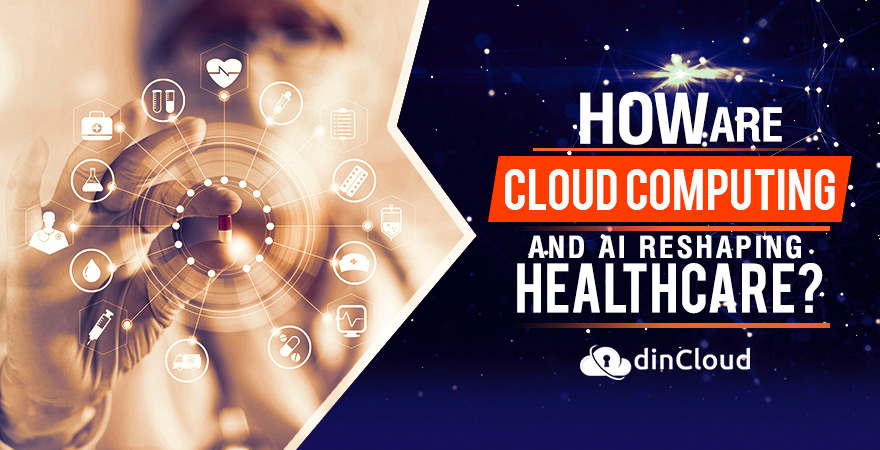The year 2020 has been dominated by a global health crisis in the form of a massive pandemic. Covid-19 has had a disruptive impact of global proportions and we are still in the recovery process from this crisis.

Like countless other sectors and industries, Cloud Computing has had a major impact on healthcare. Whether we consider it from the perspective of healthcare institutions, caregivers or researchers, the Cloud has remained at the forefront.
Also Read: Cloud Computing Benefits for the Healthcare Sector
The Impact of Covid-19 on Healthcare
Overall, the healthcare sector was among the hardest hit from this global pandemic. The sheer scale of infections and the contagious nature of this virus created a lot of challenges for the healthcare sector and the people associated with it.
In the helm of this crisis, cloud powered solutions and services acted as a true lifeline. The Cloud not only made the process of giving health related advice safe, but also a lot more efficient as compared to the pre-pandemic conventions.
Also Read: The Challenges of Securing Cloud Powered Healthcare
Cloud Powered Telemedicine – The New Norm
This pandemic not only affected the masses, it proved even more devastating for doctors, nurses and paramedics. As the infection rate in these professionals rose, providing quality care and treatment to the masses became even more challenging.
It was in times like these that cloud powered telemedicine came to the rescue. The cloud came forward as a secure, efficient and highly available resource for providing the best healthcare advice remotely over cloud powered platforms.
Telemedicine worked wonders for both patients as well as health care providers. The cloud functioned as a bridge between these entities and it not only made healthcare much more accessible, but also a lot more secure under the prevailing circumstances.
Going forward, we are expecting cloud powered telemedicine to become a mainstream trend. As more and more people realize the convenience and value in such technology driven platforms, it appears telemedicine will become a mainstream trend.
Also Read: How Cloud Computing Can Revolutionize the Healthcare Industry?
Artificial Intelligence (AI) Drives Innovation
With every passing day, AI systems are maturing and attaining the capability of doing wonders. In order to harness the true potential of AI, you need access to limitless data and the capacity to process this vast amounts of data; for valuable and actionable insights.
The Cloud provides both limitless storage and compute in order to perfect AI powered telemedicine solutions. These solutions will supplement the human expertise in the field of healthcare to deliver medical outcomes that are much more safe and accurate.
Also Read: How are dinCloud’s Services the Perfect Fit for Healthcare?
The Cloud Ensures Privacy and Security
Medical records are one of the most highly regulated class of data and the Cloud is no exception. In the present circumstances, Cloud Service Providers (CSP) like dinCloud have immensely upgraded their security and compliance standards for healthcare.
As a result of highly secure and compliant cloud infrastructures, the dream of housing medical records over the Cloud has become a reality. Healthcare providers can now store sensitive medical records over the Cloud without raising security or privacy concerns.
Once over the Cloud, medical records have become much more accessible for all the stakeholders involved. This in turn has resulted in seamless delivery of health care in the most cost effective manner, without compromising the least bit on privacy or security.
Also Read: The Cloud – A Key Enabler for Rapid Digitalization of Healthcare
Conclusion
The progress which the healthcare sector has made over the last few months may have taken years or decades under the normal circumstances. The Cloud has acted as a key enabling factor in the global healthcare sector and there are no signs of looking back.
Contact dinCloud for more details on our highly compliant and secure cloud solutions for all your healthcare related needs.


